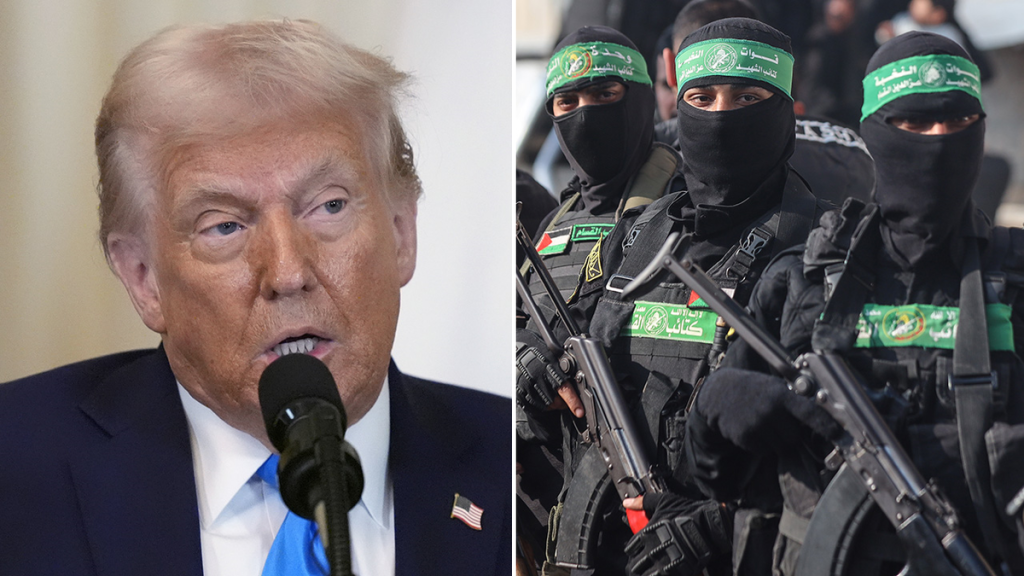The Blame Game War in the Gaza Affair

The issue is deeper than Trump wanting to solve it with a “peace through strength” strategy or pulling the Israeli regime out of the pit of political pressure. Likely, when Trump blames Hamas, the international community will not readily accept it, and those who have thus far been against the war and the Zionist regime will continue their actions. All things considered, it must be said that the main war today is the war of blame.
Mostafa Ghanizadeh – Journalist:
Since Hamas provided a detailed response to Trump’s proposal regarding the Gaza war, many texts have been written about Hamas’s shrewdness in this matter. Analysts have rightly pointed to issues such as not rejecting the agreement to avoid the blame game and the expansion of war and slaughter, or deferring the implementation of the agreement until after negotiations on the details. We will not delve into the importance and reasons for this here, as the issue has become clear. However, the main question following the response is the nature of Trump’s behavior regarding this statement. The expectation was that Trump would also recognize Hamas’s good and favorable move and confront it at this very starting point. But he welcomed the statement and called for the next stages of negotiation.
Although some of his sentences in the text and his explanatory video show that his own interpretation—based on the imminent release of prisoners—has still prevailed (even though the Hamas statement explicitly says the prisoner issue will be resolved after negotiations on details, including the withdrawal of Israeli regime forces from the Gaza Strip), the fact that Trump has not engaged in a dispute with Hamas at this stage is noteworthy.
On one hand, we must understand that compelling Netanyahu to contact the Qatari side and accept Trump’s demand is a matter that goes beyond the US President personally. Although Trump’s desire to be seen as a man of peace is influential, it is not the core of the issue. It seems the Zionist lobby within the US has concluded that Netanyahu must be reined in at this stage because the issue of the regime’s legitimacy in the Western sphere is being seriously challenged, and the extreme right-wing government of the Zionist regime has no intention of backing down or showing flexibility. This very fact has caused the lobbies to activate in a way to bring the Israeli regime out from the corner of the political-media ring. Although such a policy is temporary, and after the media pressure subsides, the war will flare up again.
On one hand, we must understand that compelling Netanyahu to contact the Qatari side and accept Trump’s demand is a matter that goes beyond the US President personally. Although Trump’s desire to be seen as a man of peace is influential, it is not the core of the issue. It seems the Zionist lobby within the US has concluded that Netanyahu must be reined in at this stage because the issue of the regime’s legitimacy in the Western sphere is being seriously challenged, and the extreme right-wing government of the Zionist regime has no intention of backing down or showing flexibility. This very fact has caused the lobbies to activate in a way to bring the Israeli regime out from the corner of the political-media ring. Although such a policy is temporary, and after the media pressure subsides, the war will flare up again.
Hamas, however, has rejected all these items and merely repeated what it had previously accepted: that it would step aside from the civilian administration of Gaza, and a Palestinian group elected by the people would govern. This, alongside the tunnels and Hamas’s military power beneath Gaza, signifies its political and military survival after this happens.
Given these descriptions, it is clear that Trump is trying to buy time and present himself as a supporter of a process commonly termed ‘peace.’ On the other hand, he aims to use the passage of time to extract the regime from its current political-media predicament. The immediate problem for both sides is negotiation before prisoner release or prisoner release before negotiation. Trump is trying to get the prisoners released and then negotiate the details—something no rational person would accept because after the prisoners are released, negotiation would be meaningless.
Likely, in the subsequent stages and during talks about details, precisely when the matter reaches no conclusion, Trump will declare Hamas guilty. Especially since some issues between the two sides, including those mentioned above, are fundamentally unsolvable; if either side accepts the other’s view, they will have accepted defeat. If Hamas accepts disarmament and a non-Palestinian civilian administration, it has effectively ended the Palestinian cause. If Netanyahu accepts the presence of weapons in Gaza, an independent Palestinian administration in Gaza, and an end to the war, his government will fall, and he himself will face political oblivion.
This means the issue is deeper than Trump wanting to solve it with a “peace through strength” strategy or pulling the Israeli regime out of the pit of political pressure. Probably in the next stage, when Trump blames Hamas, the international community will not readily accept it, and those who have thus far been against the war and the Zionist regime will continue their actions. With these descriptions, it must be said that the main war today is the war of blame.
Source: Khorasan Newspaper. No. 21880

